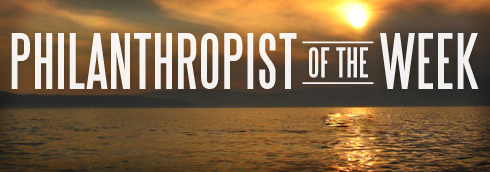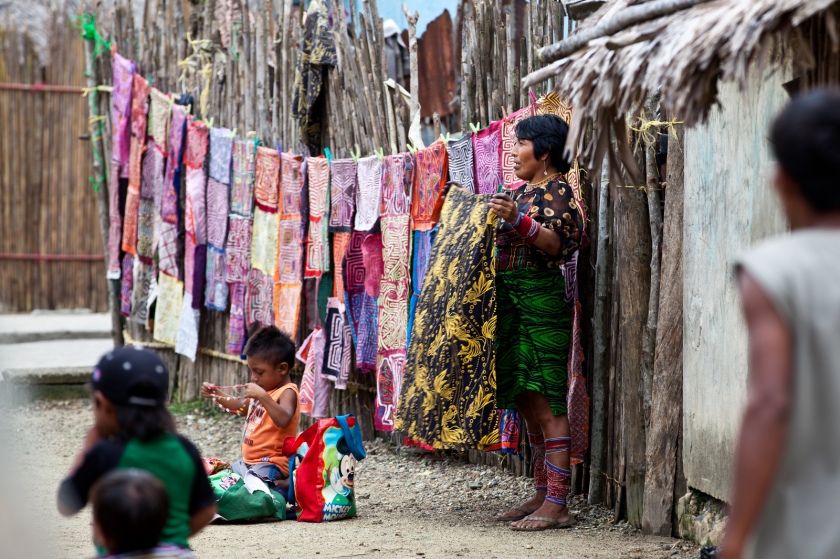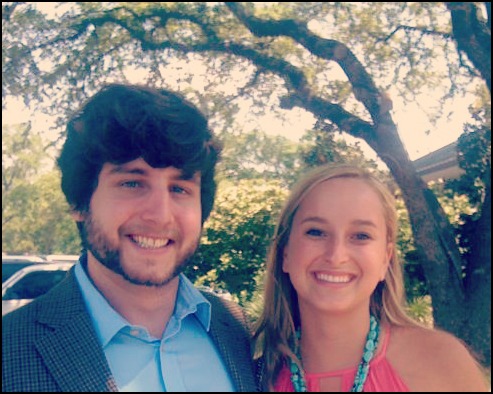One of the biggest challenges in philanthropy is getting money. We’re dreamers and we want to change the world (or maybe just a small part of it), but our minds tend to rise higher than our bank accounts. Travis and Sophie have pursued a model of giving that allows them to focus on their mission 100% of the time – a model they call “hippie capitalism.” They launched Teysha in May and their mission is to support artists in developing countries and encourage eco-friendly development.
Origins
Travis and Sophie both started traveling young, and chose to pursue degrees that sent them abroad to experience their studies first-hand. At 23-years of age, they have more travel experience than most gain their whole lives.
Travis says,
“It’s really a curiosity, more than anything. There are a ton of people that are in their tunnel vision and they don’t see all of these other things that are happening around the planet, and when you do see those things it becomes very gut-wrenching . . . and you kind of feel like you have to do something. We’re just two kids out of college who are trying to make a difference and provide for ourselves, but also address these bigger concerns. We’re not anything special, we’re just people who are doing it. We did our homework, that’s a big part of it, but anybody can do what we’re doing – you just have to take the plunge.”
As a kid, Travis’ mom let him wander in the market by himself because of how comfortable he was and how easily he made new friends. He has vivid memories of walking around and bargaining in the markets, and quickly gained a passion for art, starting by collecting masks at early as 8-years old.
Travis graduated from University of Georgia in International Affairs with a Spanish minor, and Sophie graduated from University of Texas in Sociology, Latin American studies, and a new program called Social Entrepreneurship, Non-profits, and International Development. They have lived and worked in Panama, Costa Rica, New Zealand, Columbia, Ecuador, Guatemala, Peru, and Mexico.
On fire with desire to accomplish something meaningful and with their degrees completed, they set out to accomplish a large vision of sustainable and eco-friendly development, supporting great art and culture at the same time.
Environmentally Sustainable Growth
These eleven syllables are common talking points in any discussion on philanthropy, but I have a hard time even wanting to write them down. I try to keep things simple and to the point, and this phrase is a mouthful. What we’re talking about here is a new way of economic growth – one that doesn’t buy prosperity at the expense of the environment and native cultures. Basically, not what we did when we industrialized.
One of the big problems is deforestation. Basic survival often drives us towards the most immediate solutions; we tend to not care about what happens to the earth in 50 years if it means feeding our families or sending our kids to school today. Deforestation leaves behind a slew of issues including loss of fertile soil, and it slowly pushes developing economies towards reliance on the pasture and livestock industry.
Travis and Sophie believe they can help with that. Travis explains, “My real reason for what we’re doing now is to find ways to empower people economically because that is really the solution to fighting these destructive practices of deforestation. . . .” They’re starting small, choosing to work first with the Kuna people on the northern coast of Panama, and they hope to expand to support environmentally sustainable growth and art all over the world.
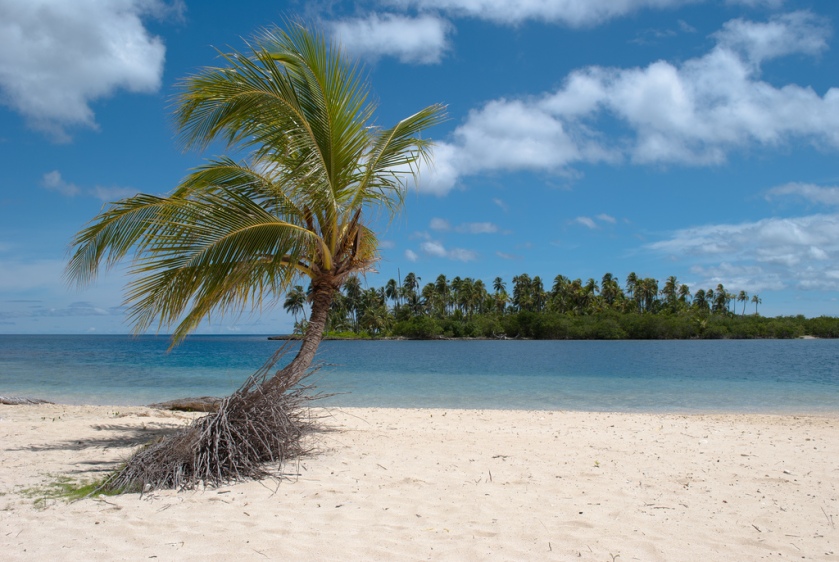
The Kuna
The Kuna people are natives to the Panama area and live primarily on 360 islands in the Caribbean. With small islands, palm trees, grass huts, and indigenous people, it is the epitome of the paradise depicted in every travel publication created since ink could be printed onto glossy paper. Ya . . . I wouldn’t mind working there myself.
The Kuna also steward thousands of hectares of rain forest and have done a great job at staying environmentally clean. Travis and Sophie want to support them in staying that way by using a simple business strategy of increasing demand for a traditional Kuna art-form: the mola.
The mola is a hand-crafted two-paneled fabric with unique geometric designs worn by women and is one of the backbones of the local economy. The art-form has taken its new form on fabric (well . . . by “new” I mean 170 years ago), but has it’s origins in body painting practiced long before Europeans settled. Women create and sell these to tourists each other, but fluctuating tourism and high competition by other Kuna women means small and inconsistent profit. By making these molas into products Americans will buy, Teysha will increase demand for the art form, making Kuna income more consistent and raising awareness for the issues that threaten the Kuna, such as government pressure to sell land rights. Their first product is a shoe called Kuna Kicks – one-of-a-kind shoes made from mola textiles.
Kuna Kicks
Sophie explains, “When someone’s wearing them they get noticed really quickly, because there’s nothing else like that in the world, so people get a definite self-esteem boost when they’re wearing something that people keep complimenting throughout the day, and then they have this really bad-ass story to tell about it too.”
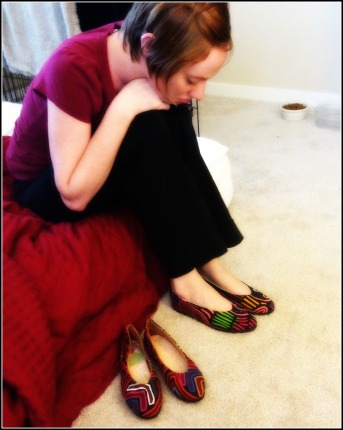
That “bad-ass” story is one that will naturally spread to the growing number of Americans who want to buy responsibly and support local business and skilled artists. With each shoe purchase we’ve supported them directly, but we also become more aware and connected with the Kuna. We know their story and share a love for their culture, and we will thus be able to give them more support in defending their territory from unwanted development, bids for mining-rights, and deforestation. No influence will smother their culture without strong activism from their American friends.
Travis and Sophie are still learning and working out the details for expanding the Kuna Kicks, but are already looking for their next product, possibly something more geared towards men (I hope so!). So far they have sold over 300 shoes–a great start–and have a high vision for what they want their business to become. They will look to expand to other countries as they grow, connecting us all with great artists world-wide.
For the curious minds out there – each mola costs Teysha $10-15, it’s then shipped to five Panamanian shoe-makers, where it is cut and formed into shoes before and finally arriving here in the states. They sell for $75 (on sale for $65 next week).
Rock your own pair
Would you like a pair of Kuna Kicks or buy a pair as a gift for someone else? You can purchase them at their website by clicking here (they are limited and you may have to wait for some sizes), or wait for their Kickstarter campaign next week – you’ll be able to buy them at a discount! Stay tuned and I’ll get you the details. Also, here’s their facebook page – toss ’em a “like” and stay up to date on upcoming events.
Don’t forget to subscribe to this blog (top right-hand side) and “like” my facebook page (click) for weekly Philanthropist features, in-depth looks into the common problems and models of philanthropy, and to follow my trips to Central America!
**********
Travis Breihan and Sophie Eckrich
